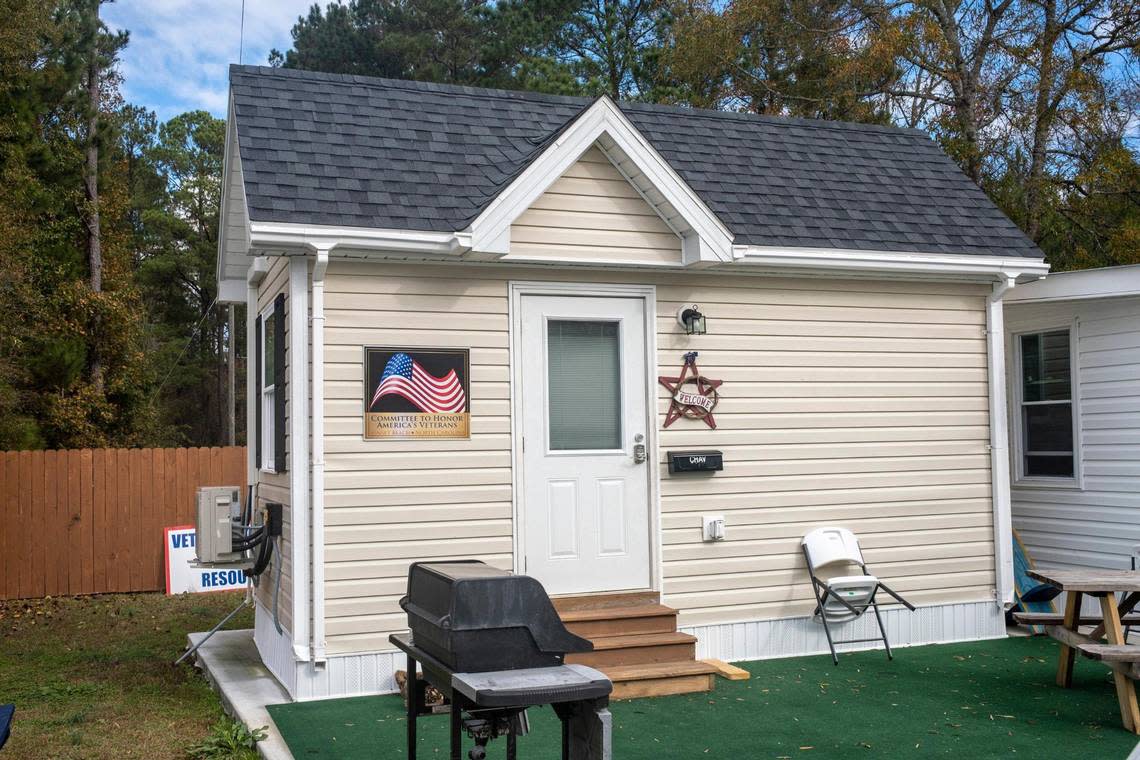Tiny homes in downtown Myrtle Beach could help solve veterans experiencing homelessness
Tiny homes in the center of downtown Myrtle Beach are one way nonprofit leaders hope to solve a growing housing crisis, and the 144 square foot homes are nearly complete.
The $3 million project, which began in January, will wrap up with phase one of construction by Christmas, said Scott Dulebohn, the director of the Veterans Welcome Home Resource Center.
The site is located at 909 Third Avenue North, will also have a resource center and eight duplexes by the end of phase two and will have room for 41 veterans in total.
“It’s just a little oasis for them,” Dulebohn said. “Somewhere where they don’t have to worry about waking up in the woods or in their car. They got their pillow and they know what their address is.”
Why tiny homes in Myrtle Beach, SC?
The concept of tiny homes have become increasingly popular in past years, and “encourages living a simpler life in a smaller space,” a Tiny Home Builders article explained. The homes are not only cost-effective, but a much more peaceful option than hotel rooms or motels, Dulebohn said.

The tiny homes have a bathroom, fridge, and are located near a full sized kitchen in the nonprofit’s resource center stocked with ingredients, appliances and nonperishable food items that would not fit inside the housing unit.
One tiny home costs about $30,000, according to Dulebohn. That’s about $20,000 more than the cheapest options for a shed at Home Depot, but not the most expensive. For a rent price in the $200 range, a veteran has access to a shower, running water, and a bed at night.
John Aranda, who served in the U.S. Navy during the Persian Gulf war in the late 80s, said his transition to a tiny home was a complete turnaround.
“I’m very much at peace,” Aranda said. “I can honestly say the two other veterans compounds I’ve been to are nothing like this.”
Aranda, who has experienced homelessness before, came to the Little River site in mid-November and has been volunteering with the nonprofit since. He hopes to ultimately find himself in a position to “help those who are about to walk into his footsteps,” he said.
“It makes you feel comfortable as an individual person, and helps you really find yourself,” Aranda said.
What to know about the Veterans Welcome Home Resource Center
The nonprofit is located at 421 Hwy 57 South, in Little River, South Carolina.
It was founded in 2009 and became a physical resource center in 2014, with the construction of the Hutton House, a four bedroom, two and a half bath house that began housing veterans.
A veteran experiencing homeless who has been honorable discharged from the military and spent 180 consecutive days on active duty is eligible to apply.
Prior to entering, the qualified veteran receives an evaluation, and must fill out a detailed written plan geared to help them receive an “independent living status,” the website reads. In the event that a veteran fails to stick to the plan, they will be discharged.
The veteran is also responsible for helping to keep the building and grounds in an appropriate condition.
The nonprofit is always looking for volunteers and donations, which can be made on their website.
Why veterans?
Data collected by the Veterans Welcome Home and Resource Center showed that more than 80% of the people experiencing homelessness last year were over 65 years of age. And 1,400 of the veterans helped by the nonprofit served in the U.S. Navy.
Veterans sign up to give their life, whether they do so or not, Dulebohn said.
“You make a couple of bad decisions and now you don’t have internet, or a phone or any family living around you,” Dulebohn said. “So groups like this are really important for the veteran community to make sure they’ve got another family.”
